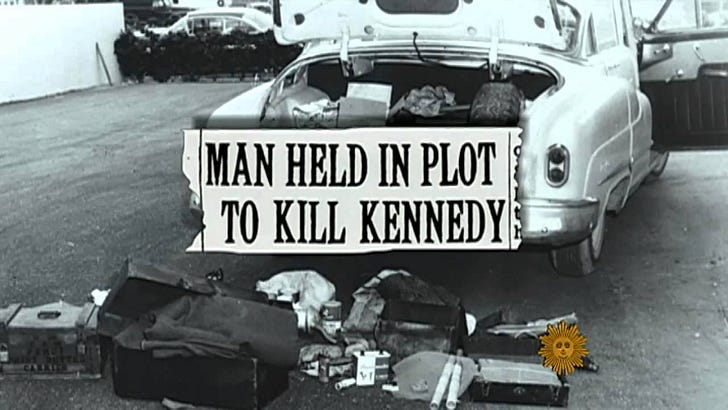Today marks the 60th anniversary of John F. Kennedy’s assassination on November 22, 1963. It is probably the last major anniversary in which those born in the 1940s and 1950s with sharp memories of the event will be able to express themselves before it fades into history with fewer living persons able to recall it. Obviously, there will still be a few people over 100 years old living in the 2050s who can personally recall it.
To spark public memory of this major event in American history, James Coplan, a neighbor of mine, posted on Nextdoor on November 22, 2021, asking if readers could remember where they were and what they were doing on that day. He recalled that he was 15, sitting in study hall when his English teacher burst in with the news. Nearly 200 people responded over the next nine days with their own memories of that fateful day.
What are yours? Post in the comments below.
What was most surprising was one person’s observation that it was “ancient history,” implying that it was unworthy of so much commentary. I replied:
“If JFK’s assassination is ‘ancient history,’ then what of other events that shape the world we live in now, like WWII, or heaven forbid, the Roman Empire? The narrow lens upon which some of us view the world! If it did not happen in my lifetime, it must not be important!”
It’s true that Kennedy’s assassination as a turning point in history can be overstated. It’s easy to confuse public spectacle — dramatically recorded violent events involving celebrities — such as assassinations — including national traumas such as 9/11 — with events of long-term significance that reverberated for decades or even centuries.
The initial reaction to JFK’s assassination and that of his brother Bobby and Martin Luther King could be placed neatly into the great man theory of history. If the great man had not been assassinated, the civil strife, the war in Vietnam, and the loss of cultural innocence, the loss of faith in government, the loss of hope in racial reconciliation that followed could have been avoided.
I tend not to believe anymore in the great man or woman theory of history, indispensable heroes. Only a few individuals per century rise to such a level of greatness.
“Andrea: ‘Unhappy is the land that breeds no hero.’
Galileo: No, Andrea. ‘Unhappy is the land that needs a hero.’ “ — Bertolt Brecht, Galileo. — Quoted in An American Melodrama: The Presidential Campaign of 1968.
Conversely, there’s the bad man theory of history. If Adolph Hitler didn’t exist, WWII wouldn’t have happened, this theory goes. If Osama Bin Laden didn’t exist, 9/11 wouldn’t happen. If Lee Harvey Oswald (and/or his co-conspirators) didn’t exist, JFK would have served out his term and numerous other tragedies would have been avoided, this theory projects.
The more I read of history, the more convinced I am that history turns, in the words of Jeff Greenfield, "not on a dime but on a plugged nickel." Greenfield wrote two books, If Kennedy Lived: The First and Second Terms of President John F. Kennedy: An Alternate History and Then Everything Changed: Stunning Alternate Histories of American Politics: JFK, RFK, Carter, Ford, Reagan. I found them both plausible.
In other words, history often turns on minuscule decisions — for example, a split-second impulse to exit stage right instead of stage left, where a leader is met by an assassin, or not. A chance meeting in which one hears about a job opportunity, a decision to apply for a job, or an employer's decision to hire a worker, or not. What you say and do, what I say and do on a daily basis contributes to culture, to our own history, and that of those we interact with. Choosing not to interact is just as important as choosing to interact, as the Covid-19 pandemic painfully taught us.
And now for a little time travel. My mother Lil Buie wrote a letter to her daughters at college one day after President Kennedy’s assassination.
Saturday, November 23, 1963: (Lil’s two oldest children, Kathy and Ann, were away at college when President Kennedy was assassinated on November 22, 1963.)
Dearest Girls,
Keep reading with a 7-day free trial
Subscribe to Slender Threads / Global Citizens / Public History to keep reading this post and get 7 days of free access to the full post archives.




